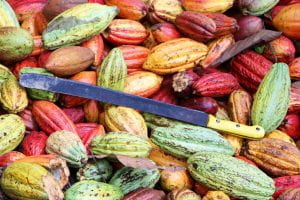I know that this is not directly related to the content of this class, but what I write about speaks louder to me than the food system in this moment. So, I wanted to share my thoughts on the Black Lives Matter movement with you all. Thank you for reading.
———————————-
Distress, aguish, disappointment with US institutions, grief, sadness. These are all emotions I have been overwhelmed with lately, with everything that is going on. The institutional racism, injustices, and many deaths that we have been battling with the Black Lives Matter movement brings up feelings of sadness yet hope. Over the past few days, I have felt a sense of unity among protestors and social media that I have been participating in. As we march through the streets of Seattle, chanting “black lives matter,” “no justice, no peace,” “don’t shoot,” the names of black lives that have been brutally taken, and many other chants, I feel connected to those around me, fighting for equity.
We live in a society that lacks a true democracy that fails to hold politicians and institutions accountable. This cannot go on. I believe that was collective action and a strong force of solidarity, something bit will come of this. I know that this sounds cliche, but history repeats itself, and there are many lessons we can learn from it. From a protest at a police precinct the other night, one of the organizers shared to the crowd, “right now, the analysis is that this is what happens before the government gets overthrown.” Parallel to the Civil Rights movement, after the assassination of Martin Luther King Jr., week of protesting, rallying, and movements went on all over the country before the Civil Rights Act of 1968 was passed under Lyndon B. Johnson. Legislation that upholds the rights of the oppressed could come of the contemporary Black Lives Matter movement, similar to the Civil Rights Movement.
What we are demanding today is defunding of the police, investment in minority communities, accountability for politicians and police officers, justice for the lives lost from police brutality and systemic racism, and the dismantling and abolition of the white supremacist systems that are being upheld. If we want to make a dent of progress in these demands, we must be united. Our collective action and unity is working thus far, our voices are being heard. Just in Seattle, the curfew was lifted to allow protests to commence, the consent decree is no longer under attack, Mayor Jenny Durkan spoke with us at City Hall, no state sanctioned violence occurred in Capitol Hill, Seattle on June 3rd, and the masses continue to organize both in the streets and online.
Listen to our voices, listen to our stories. The youth is the truth! Words cannot describe the anger, confusion, and sense of smallness and overwhelmed I continue to feel as we fight for basic human rights. But the past few days, I have felt overwhelmed by unity. We are reaching a leverage point to intervene with these racist and unjust systems that enable suffering and oppression. I am hopeful that we can achieve liberation.
-Reily S.
Sources:
https://guides.ll.georgetown.edu/c.php?g=592919&p=4172702










